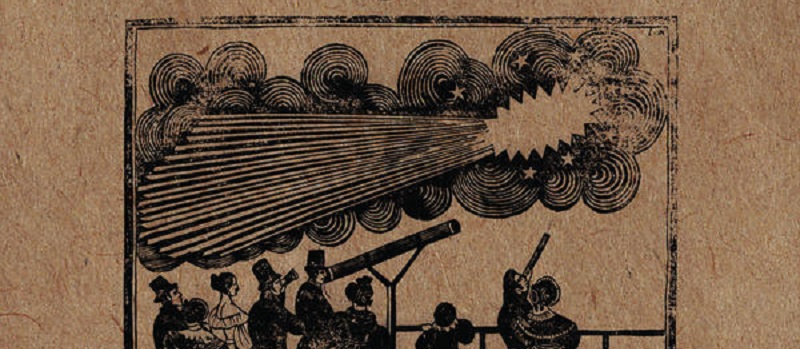Steve Albini once infamously offered up “ten fucking stars” in Melody Maker to the swansong LP of a then-unknown Louisville quartet named Slint.
Twenty three long years later, much has changed, but those words still resonate and the praise still sounds more than justified. It’s prescient, even.
“Spiderland is a majestic album, sublime and strange, made more brilliant by its simplicity and quiet grace,” Albini, a renowned Chicago-based musician, recording engineer and indie iconoclast, wrote in the UK paper. “Songs evolve and expand from simple statements that are inverted and truncated in a manner that seems spontaneous, but is so precise and emphatic that it must be intuitive or orchestrated or both.”
Spiderland, the Rosetta Stone of post-rock and arguably ground zero for genres such as math-rock and slowcore, was a brilliant opus of a record, a once-in-a-band’s-lifetime collision of introspection and public performance. It felt less like a recording and more like eavesdropping. Yes, it’s that good. And, though Slint’s band members moved on — in some obscurity at first, later with the touch ofunderground legends – the aura of mystery and excitement around the LP grew year in and year out. The fever pitch led to brief reunions, of sorts, in 2005 and 2007. But the band – bassist Todd Brashear, guitarist/vocalist Brian McMahan, guitarist David Pajo and drummer Britt Walford – never recorded as Slint again. It’s as if Spiderland, though the group’s second record, was a birth announcement, as well as a death certificate.
That brings us to 2013 and the peculiar responsibility of weighing in on Touch and Go Record’sSpiderland: Remastered boxed set. The offering, pressed to vinyl, CD and DVD in a limited run of 3,000 and change, comes complete with recordings remastered at the hands of Bob Weston, demos and outtakes that go beyond the typical bootleg offerings, a Lance Bangs feature-film documentary firming up the mythos, and an exhaustive photo-book with foreword by Will Oldham, who photographed Spiderland’s somehow-ominous, black-and-white cover before launching his own musical career as Palace, Bonnie “Prince” Billy and under his own name.
More people likely will read reviews of the new boxed set than can find a channel to buy one and that speaks volumes about the band that Slint has become — largely in absentia, at that. Touch and Go’s Corey Rusk already has announced an unlimited, though different, run of the release due to heightened public interest, another measure that says a lot about the band and what it’s come to represent nearly 20 years after first forming from the ashes of bands like Maurice, Squirrel Bait and Languid & Flaccid in the leafy and, yeah, weird environs of suburban Louisville, Kentucky.
So?
Weston, no stranger to the engineer’s post, is nothing if not respectful to Spiderland’s source material and modus operandi, and he tinkers with the faders so little, in fact, on the boxed set that one could extract the term remix from the conceptual remastering process. McMahan’s vocals have a decidedly pronounced chill to them, the whispers somehow doing more to punctuate the guitar lines behind them. Walford’s drums also sound punchier in the mix – though nowhere near as throttling as they can sound live – but Weston preserves the highly naturalistic room tones set by Brian Paulson, Spiderland’s original engineer, and that saves the entire thing from being an exercise in de rigeur revisionism. In short, the 1991 levels have been updated to our 2014 players and technology; has Spiderland ever sounded so good?
Ardent Slint fans will be familiar with a good percentage of what the outtakes disc offers, from live recordings of Neil Young’s “Cortez The Killer” to demo takes on songs that eventually found their home on Spiderland. The disc is nothing if not extensive, however, and the boxed set producers share a handful of startling untitled songs – rough drafts, really – and four-track demos that will make most post-rockers swoon.
Walford, and not, as many might have thought, frontman McMahan, was the driving force behind Slint and provided the greatest creative contribution to Spiderland, if Bangs’ Breadcrumb Trail is to be believed. It’s been easy to paint McMahan as the chief scribe and brain trust since so much of his post-Slint output – I’m looking, of course, mostly at The For Carnation – has echoed Spiderland. But Bangs uses interviews with countless family members and friends, bandmates, scenesters (yes, Ian MacKaye, we’re ready for your close-up) and even archival footage to show that Walford’s eerily symbiotic friendship with McMahan and Walford’s own muted sensibilities led Slint, a band named after one of Walford’s fish, to become the flagship group that, well, it became only after it went the way of the dinosaur.
Again, ardent Slint fans will drool over the interviews Bangs has scored – including with all members of the band – and the portrait he paints of Slint. But it’s not all reverence. Bangs portrays the members of Slint as creatures of a specific place and time, and very human creatures at that, playing with their bizarre rituals (yes, he asks about the anal breathing tapes) and almost adolescent sense of humor. Then again, it’s easy to forget that these guys were practically kids when they recorded Spiderland in the first place.
All in all, the Spiderland: Remastered boxed set does a great job of illuminating what made this landmark record so goddamn breathtaking in the first place and then some. It also, however, is at its best when mining the soil from which Slint sprang for inspiration, curiousities and musical nutrients and, here, Lance Bangs is owed a standing ovation. I don’t know how Breadcrumb Trail would play among those who can’t separate Spiderland from other circa-1991 fare, say Nirvana’s Nevermind, but my hunch is these guys have a magnetism that draw people to their inventive and often haunting creations. There’s just no other way to explain why a six-song record cut over a weekend by a bunch of college-aged friends from a small American city could create this cultural zeitgeist and leave behind such a perfect gem of a recording.
The verdict? Ten fucking stars. – Popdose, May 6, 2014




